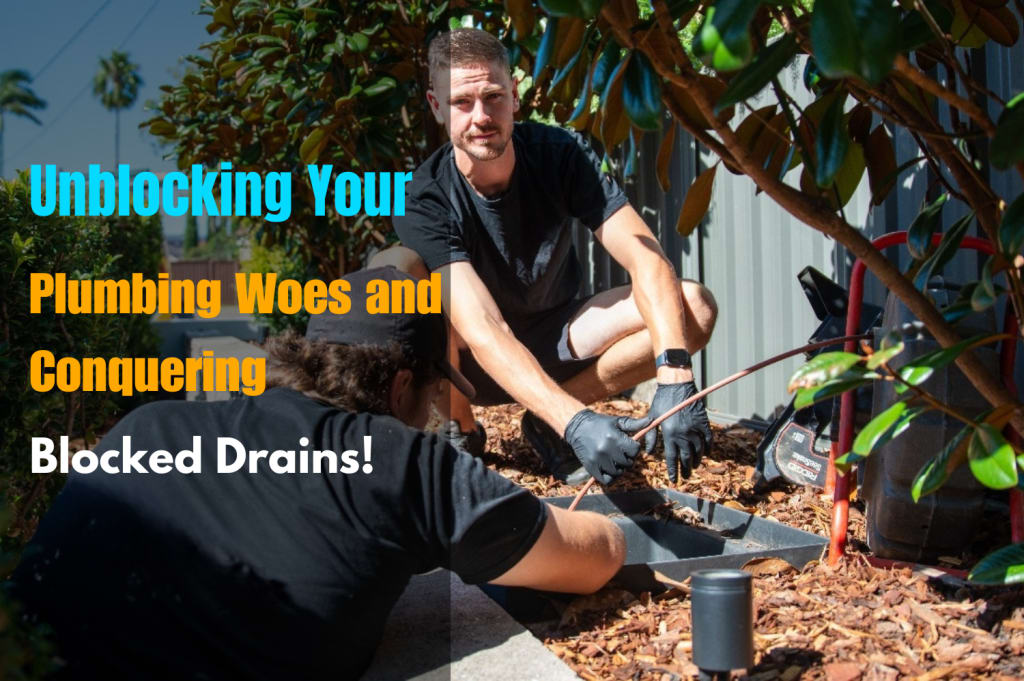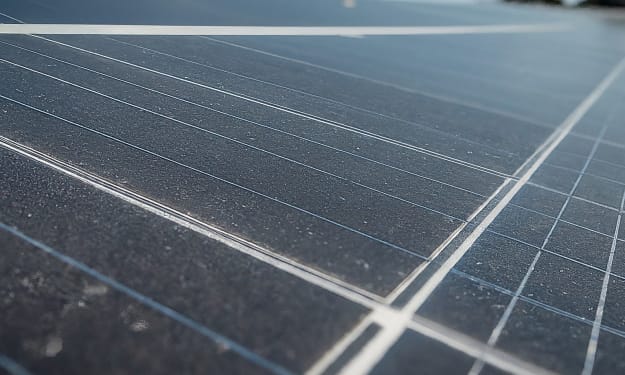S.O.S. Sydney: Unblocking Your Plumbing Woes and Conquering Blocked Drains!
Rescue Your Home: Mastering Drain Unblockage and Overcoming Plumbing Challenges in Sydney!

If you've ever experienced a plumbing nightmare, you know just how distressing it can be. From the sudden gush of water to the ominous gurgling sounds, plumbing issues can disrupt your daily life and cause unnecessary stress. Don't fret! In this comprehensive guide, we'll dive into the world of plumbing troubles and provide you with actionable solutions to unblock those stubborn drains. Whether you're a seasoned DIY enthusiast or a plumbing novice, we've got you covered.
Table of Contents
1. Introduction: The Plumbing Predicament
2. Common Culprits of Blocked Drains
3. DIY vs. Professional Help: Weighing Your Options
4. Tools of the Trade: Essential Equipment for Clearing Drains
5. Step-by-Step Guide to Unclogging Your Drains
- The Preliminary Assessment
- Gather Your Tools
- Clearing Hair and Debris
- Baking Soda and Vinegar Magic
- Plunging Your Way to Freedom
- Plumbing Snake: A Real Lifesaver
- When to Call in the Pros
6. Preventive Measures: Maintaining Free-Flowing Drains
- Mindful Disposal of Waste
- Regular Hot Water Flush
- Screen Your Drain
- Grease Is Not the Word
- Professional Maintenance Routine
7. Environmental Impact of Proper Drain Care
8. Conclusion: A Clear Path Forward
Introduction: The Plumbing Predicament
Picture this: You're going about your day, and suddenly, water starts pooling around your feet as you shower. Or worse, your kitchen sink refuses to drain, leaving you with a sink full of murky water and a sinking feeling of frustration. These are all too common scenarios faced by homeowners in Sydney and beyond. Plumbing issues, particularly blocked drains, can turn your home into a chaotic mess.
Common Culprits of Blocked Drains
From stray hair strands to food scraps, there's no shortage of items that can wreak havoc on your drains. Hair, grease, soap scum, and even small objects accidentally washed down the drain can accumulate over time, leading to stubborn blockages. Understanding the culprits behind these clogs is the first step towards prevention.
DIY vs. Professional Help: Weighing Your Options
When faced with a blocked drains in Sydney, you might wonder whether to roll up your sleeves and tackle the issue yourself or call in the professionals. While some minor clogs can be cleared with DIY methods, more severe blockages and complex plumbing systems may require expert intervention. Let's explore the pros and cons of each approach.
Tools of the Trade: Essential Equipment for Clearing Drains
Before you embark on your drain-clearing mission, it's essential to have the right tools at your disposal. From plungers to plumbing snakes, each tool serves a specific purpose in the battle against blocked drains. Familiarize yourself with these tools to ensure a smooth unclogging process.
Step-by-Step Guide to Unclogging Your Drains
The Preliminary Assessment
Before diving into drain-clearing techniques, start with a preliminary assessment. Determine the severity of the blockage, the affected area, and whether any foul odors are present. This assessment will guide your next steps.
Gather Your Tools
Equip yourself with the necessary tools: a plunger, a plumbing snake, baking soda, vinegar, a bucket, and rubber gloves. Having these tools on hand will save you time and frustration during the unclogging process.
Clearing Hair and Debris
Begin with the basics: removing visible hair and debris from the drain. Wear gloves and use a small wire or drain brush to dislodge and extract any obstructions near the surface.
Baking Soda and Vinegar Magic
Harness the power of a natural, chemical-free solution by pouring a mixture of baking soda and vinegar down the drain. This fizzy concoction can help break down grease and gunk.
Plunging Your Way to Freedom
Place a plunger over the drain and create a tight seal. Vigorously plunge up and down to create pressure and dislodge the blockage. This method is effective for minor clogs.
Plumbing Snake: A Real Lifesaver
For more stubborn blockages, a plumbing snake can work wonders. Insert the snake into the drain and rotate it to catch and pull out debris. Exercise caution to avoid damaging your pipes.
When to Call in the Pros
If DIY methods prove ineffective or if you're dealing with a recurring blockage, it's time to call in professional plumbers. They have the expertise and specialized tools to tackle even the most stubborn clogs.
Preventive Measures: Maintaining Free-Flowing Drains
Mindful Disposal of Waste
Practice responsible waste disposal by avoiding washing large food scraps, coffee grounds, and oil down the drain. Use a compost bin or trash receptacle instead.
Regular Hot Water Flush
Once a week, pour a kettle of hot water down the drain to help prevent grease buildup and maintain smooth drainage.
Screen Your Drain
Install drain screens to catch hair, soap scum, and other debris before they have a chance to create blockages.
Grease Is Not the Word
Dispose of cooking grease and oil in a designated container. Grease can solidify and constrict pipes, leading to stubborn blockages.
Professional Maintenance Routine
Schedule regular plumbing maintenance with professionals. They can inspect your pipes, identify potential issues, and perform necessary maintenance to prevent future clogs.
Environmental Impact of Proper Drain Care
By adopting responsible drain care practices, you're not only preventing clogs but also contributing to a healthier environment. Proper waste disposal and mindful water usage reduce strain on local water treatment facilities and promote sustainability.
Conclusion: A Clear Path Forward
Navigating the realm of blocked drains doesn't have to be a daunting task. With the right knowledge, tools, and preventive measures, you can conquer plumbing woes and ensure your drains remain free-flowing. Remember, a proactive approach to drain care can save you time, money, and unnecessary stress in the long run.
FAQs
Q1: Can I use chemical drain cleaners to unclog my drains?
A: While chemical drain cleaners may offer a quick fix, they can damage pipes and harm the environment. It's best to opt for natural, mechanical methods or seek professional assistance.
Q2: What's the main cause of foul odors coming from drains?
A: Foul odors are often caused by a buildup of food particles, grease, and other debris in the pipes. Regular hot water flushes and natural cleaning solutions can help alleviate these odors.
Q3: How can I prevent hair clogs in the shower drain?
A: Using a drain screen or catcher can effectively trap hair before it goes down the drain. Regularly cleaning and removing trapped hair will help prevent clogs.
Q4: Are there any DIY methods for clearing severe blockages?
A: While some DIY methods may work for minor clogs, severe blockages should be handled by professionals to avoid causing further damage to your plumbing system.
Q5: What should I do if I have multiple drains clogging simultaneously?
A: Simultaneous clogs in multiple drains could indicate a more extensive plumbing issue. In this case, it's advisable to contact a professional plumber to assess the situation.
About the Creator
Nikki Hinata
Passionate content writer crafting engaging, impactful content. From blogs to website copy, I bring ideas to life through storytelling and relatable communication. Let's create exceptional, captivating content together! #ContentWriter






Comments
There are no comments for this story
Be the first to respond and start the conversation.